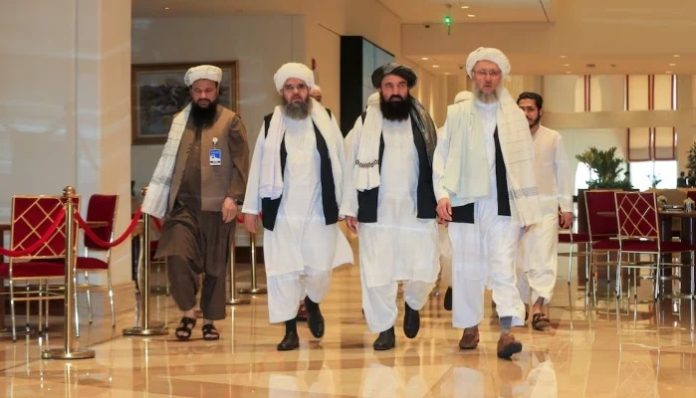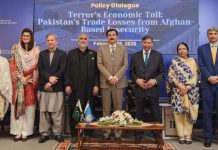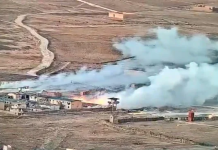KABUL, JUN 29: Taliban authorities said on Saturday that demands over women’s rights were “Afghanistan’s issues” to solve, ahead of United Nations-led engagement talks where the exclusion of Afghan women has sparked an outcry.
The Taliban government, which has imposed restrictions on women since seizing power in 2021 that the UN has described as “gender apartheid”, will send its first delegation to the third round of talks starting in Qatar on Sunday.
Civil society representatives, including from women’s rights groups, will attend meetings with the international envoys and UN officials on Tuesday, after the official talks.
Rights groups have condemned the exclusion of Afghan women from the main meetings and the lack of human rights issues on the agenda.
The Taliban authorities “acknowledge the issues about women”, government spokesman Zabihullah Mujahid told a news conference in Kabul on the eve of the latest talks.
“But these issues are Afghanistan’s issues,” said Mujahid, who will lead the delegation.
“We are working to find a logical path toward solutions inside Afghanistan so that, God forbid, our country doesn’t again fall into conflict and discord.”
He said the Taliban government would represent all of Afghanistan at the meetings and, given their authority, should be the only Afghans at the table.
“If Afghans participate through several channels, it means we are still scattered, our nation is still not unified,” he said.
The talks were launched by the UN in May 2023 and aim to increase international coordination on engagement with the Taliban authorities, who ousted a Western-backed government when they swept to power.
The Taliban government has not been officially recognised by any state and the international community has wrestled with its approach to Afghanistan’s new rulers, with women’s rights issues a sticking point for many countries.
Taliban authorities were not invited to the first talks in Doha last year and refused to attend the second conference, demanding that they be the sole Afghan representatives to the exclusion of invited civil society groups.
That condition has been met for the third round.
Mujahid reiterated that the Taliban government sought positive relations with all countries.
However, he added that “no major or key discussions” would take place in Doha and that the meeting was an opportunity to exchange views, particularly with Western countries.
The agenda will include combating narcotics and economic issues, key topics for authorities in the impoverished country.
“We have hurdles blocking economic development, which should be removed,” Mujahid said.
“If the economy were fine, then all other issues could be solved. “

















